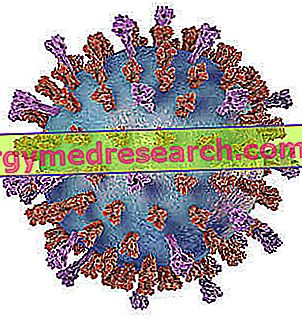Definition
Confusion is an acute, often reversible, disorder of attention, cognitive ability and level of consciousness. The result is a sense of unease, agitation or, in the most serious cases, delirium.
The confusional state is generally a consequence of an underlying disease, medical complications or the intake of particular drugs or psychoactive substances. Among the most common causes are infections (encephalitis, meningitis, pneumonia, urinary tract infections and sepsis), dehydration, use or withdrawal of certain drugs (in particular: anticholinergics, antipsychotics, benzodiazepines, opioids and other drugs active in the CNS). Many other conditions can cause a state of mental confusion. Among these, there are diseases:
- hematologic (leukemia and thrombocytosis),
- vascular-circulatory (anemia, pulmonary embolism, cardiac arrhythmias, hypotension, heart failure and shock),
- endocrine (hyperparathyroidism, hyperthyroidism and hypothyroidism),
- neurological (brain tumors, ischemic and hemorrhagic stroke).
Trauma can also cause confusion (concussion, burns, electrical injuries, heat stroke and hypothermia), abstinence from (or abuse of) alcohol or drugs, sleep deprivation, ingestion of toxins and metabolic alterations (hyperglycemia, hypoxia and vitamin deficiency). ).
The mechanisms underlying the confusional state have not yet been fully understood; among the various events, it is likely that abnormalities of neurotransmitters will occur.
Possible Causes * of confusional State
- Alcoholism
- Anemia
- Brain aneurysm
- Angina pectoris
- Anthrax
- Cardiac arrest
- Atherosclerosis
- Transient ischemic attack
- Beriberi
- Binge drinking
- Motion sickness
- Liver Cirrhosis
- Cysticercosis
- Cystitis
- Heat stroke
- Digestive congestion
- cryptococcosis
- Pulmonary heart
- Vascular dementia
- Diabetes
- dyslipidemia
- Respiratory Distress
- Post-Traumatic Stress Disorder
- Pulmonary embolism
- Cerebral hemorrhage
- Encephalitis
- Tick-borne encephalitis (TBE)
- Japanese encephalitis
- Wernicke's encephalopathy
- Infective endocarditis
- Non-infectious endocarditis
- Fulminant hepatitis
- Crimean-Congo haemorrhagic fever
- Marburg hemorrhagic fever
- Yellow fever
- Ectopic pregnancy
- Herpes zoster oticus
- Stroke
- Heart attack
- West Nile virus infection
- Heart failure
- Respiratory failure
- Insulinoma
- Carbon monoxide intoxication
- Hyperparathyroidism
- Pulmonary hypertension
- Hyperthyroidism
- Hypoparathyroidism
- Hypothyroidism
- Cerebral ischemia
- Histoplasmosis
- Legionellosis
- Leptospirosis
- Leukemia
- Listeriosis
- Creutzfeldt-Jakob disease
- Toxic megacolon
- Meningioma
- Meningitis
- Multiple myeloma
- Alzheimer's disease
- Pellagra
- pyelonephritis
- Polycythemia vera
- Pneumonia
- Pre-eclampsia
- Korsakoff psychosis
- Anger
- Schizophrenia
- Heart failure
- Sepsis
- Septic shock
- Syphilis
- Decompression syndrome
- Brugada syndrome
- Reye syndrome
- Hemolytic-uremic syndrome
- Fibromyalgia syndrome
- Serotonin syndrome
- Typhus
- Toxoplasmosis
- trichinosis
- African trypanosomiasis
- Essential thrombocythemia
- Burns



